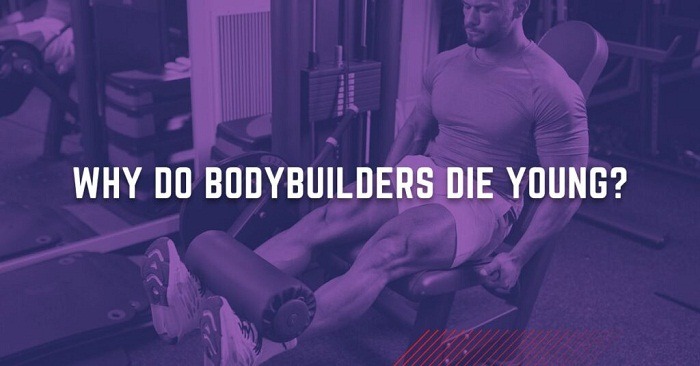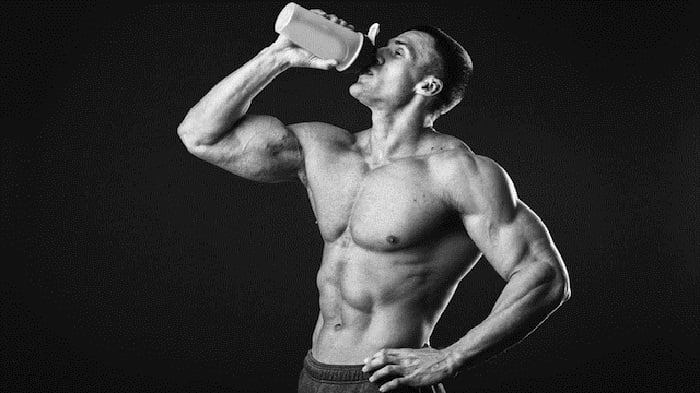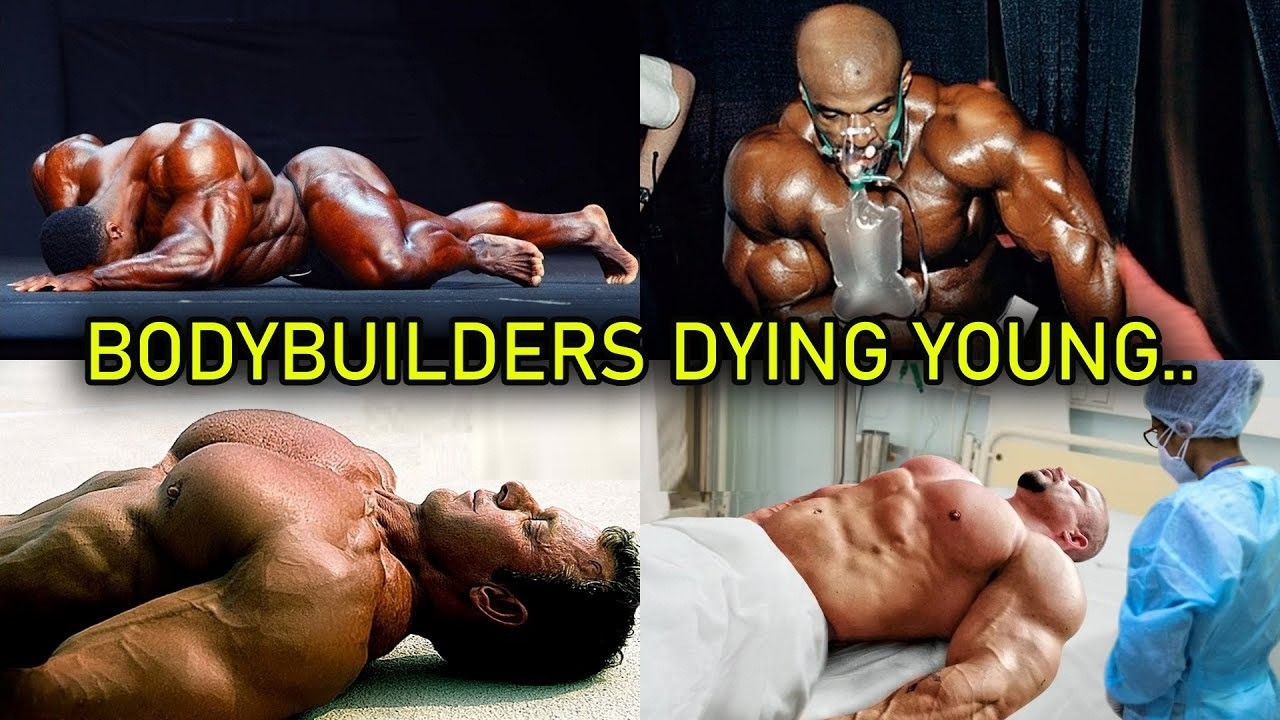Why are Bodybuilders dying Young?
Contents
- 1 Why are Bodybuilders dying Young?
- 2 Intensive Training and Cardiovascular Strain
- 3 Anabolic Steroids and Performance-Enhancing Drugs
- 4 Nutritional Practices and Extreme Diets
- 5 Psychological Stress and Mental Health
- 6 Genetic Predispositions
- 7 Dehydration and Electrolyte Imbalances
- 8 Frequently Asked Questions (FAQs)
- 9 Conclusion
Bodybuilding, a pursuit that champions strength, discipline, and physical prowess, has unfortunately been marred by a disturbing trend – the premature mortality of some of its practitioners. The world has witnessed the untimely deaths of several iconic bodybuilders, raising questions about the factors contributing to this phenomenon. This comprehensive article delves into the complex interplay of elements that may be associated with why are Bodybuilders dying Young, exploring both physiological and lifestyle factors in extensive detail.
Must Check: Top 5 Biggest Bodybuilders Of All Time | No. 1 Will Shock You

Intensive Training and Cardiovascular Strain
At the heart of bodybuilding lies the dedication to intense training regimens designed to sculpt the physique into a pinnacle of strength and aesthetics. The pursuit of hypertrophy and increased strength often leads to high-intensity workouts that place considerable stress on the cardiovascular system. The repetitive nature of heavy lifting, combined with minimal rest periods, can elevate blood pressure and heart rate, increasing the risk of heart-related issues such as myocardial infarction.
To understand the impact of training intensity, it is crucial to recognize the delicate balance between pushing physical limits and maintaining heart health. Cardiovascular adaptations are expected in athletes, but the fine line between adaptation and strain is often blurred. The sustained elevation of heart rate during training, coupled with the sheer load imposed on the heart and blood vessels, can lead to chronic cardiovascular stress, potentially contributing to premature mortality.
Researchers and health professionals advocate for regular cardiovascular assessments in bodybuilders to monitor heart health. This includes evaluations of blood pressure, heart rate variability, and cardiac imaging to detect early signs of strain. The integration of cardiovascular health monitoring into the bodybuilding community’s practices could prove instrumental in identifying individuals at risk and implementing preventive measures.
Anabolic Steroids and Performance-Enhancing Drugs
The allure of rapid muscle growth and enhanced physical performance has led many bodybuilders down a perilous path – the use of anabolic steroids and other performance-enhancing drugs (PEDs). While these substances may deliver short-term gains in muscle mass and strength, their long-term consequences are profound and often deleterious to overall health.
Anabolic steroids, including testosterone and its synthetic derivatives, can disrupt the delicate hormonal balance within the body. Prolonged use can lead to cardiovascular issues, liver damage, and psychiatric disorders. The cardiovascular risks associated with anabolic steroid use are particularly concerning, as they may exacerbate the strain imposed by intense training regimens.
To address this concern, the bodybuilding community must prioritize education and awareness regarding the risks of PEDs. This includes disseminating information about the potential health consequences, implementing stringent drug testing protocols in competitions, and promoting natural and sustainable approaches to muscle building. Additionally, healthcare professionals and sports organizations should collaborate to provide accessible resources for bodybuilders seeking guidance on safe and legal alternatives to PEDs.
Nutritional Practices and Extreme Diets

Achieving the ideal physique often involves a meticulous approach to nutrition, but the line between dedication and obsession can be thin. Some bodybuilders adopt extreme dietary practices, including restrictive diets, excessive calorie counting, and drastic nutritional regimens, in their quest for the perfect physique. These practices may lead to nutrient deficiencies, electrolyte imbalances, and other metabolic issues that can compromise overall health.
It is essential to recognize that nutrition plays a pivotal role not only in muscle development but also in supporting overall well-being. A balanced and individualized approach to nutrition, tailored to the specific needs and goals of each bodybuilder, is crucial. Nutritional experts and dietitians specializing in sports nutrition can collaborate with athletes to design sustainable and health-conscious dietary plans that optimize performance while mitigating potential risks.
The bodybuilding community can benefit from educational initiatives that emphasize the importance of balanced nutrition and discourage extreme dieting practices. Promoting a holistic understanding of nutrition, focusing on nutrient-dense foods, and providing guidance on sustainable dietary habits can contribute to the long-term health and well-being of bodybuilders.
Psychological Stress and Mental Health

Beyond the physical demands, the mental toll of bodybuilding is a significant factor in understanding premature mortality within the community. The relentless pursuit of physical perfection, coupled with the competitive nature of the sport, can contribute to stress, anxiety, and even depression. Mental health issues, if left unaddressed, can have a cascading effect on physical well-being and may contribute to premature mortality.
Acknowledging the intricate connection between physical and mental health is imperative. The bodybuilding community should prioritize mental health awareness and destigmatize seeking psychological support. Athletes can benefit from access to mental health professionals who understand the unique challenges of the sport and can provide tailored interventions.
Coaches, trainers, and support staff within the bodybuilding community should undergo training to recognize the signs of mental health struggles in athletes. Implementing proactive measures, such as stress management programs and regular mental health check-ins, can contribute to a supportive environment that prioritizes the holistic well-being of bodybuilders.
Genetic Predispositions
While lifestyle factors play a significant role, genetic predispositions cannot be ignored when investigating premature mortality among bodybuilders. Some individuals may have a higher susceptibility to certain health conditions, including cardiovascular diseases, which may be exacerbated by the intense physical demands of bodybuilding.
Genetic testing and profiling can offer valuable insights into an individual’s predisposition to specific health risks. Integrating genetic information into personalized health plans allows for targeted interventions and preventive measures. Healthcare professionals, including genetic counselors and sports medicine specialists, can collaborate with bodybuilders to create tailored health strategies that consider both genetic factors and lifestyle choices.
Additionally, promoting a culture of transparency and openness regarding genetic predispositions within the bodybuilding community can facilitate a more informed and supportive environment. Athletes who understand their genetic risks can make informed decisions about training intensity, nutritional choices, and overall health management.
Dehydration and Electrolyte Imbalances
The pursuit of a lean and defined physique often leads bodybuilders to manipulate their water and sodium intake to enhance muscle definition. While achieving a shredded appearance is a common goal, extreme dehydration practices, and electrolyte imbalances can have serious health consequences.
Dehydration can impair thermoregulation, increase the risk of heat-related illnesses, and compromise overall performance. Electrolyte imbalances, particularly involving sodium, potassium, and calcium, can disrupt nerve and muscle function, leading to cramping, weakness, and in severe cases, life-threatening complications.
To mitigate these risks, bodybuilders should adopt evidence-based strategies for achieving and maintaining optimal hydration levels. This includes understanding individual hydration needs, implementing gradual weight-cutting practices, and prioritizing rehydration post-competition. Coaches and trainers should be well-versed in safe practices, and competition organizers can play a role in promoting responsible weight management among athletes.
Frequently Asked Questions (FAQs)
Q1: Why do some bodybuilders die young?
A1: The premature mortality observed in some bodybuilders is a complex issue with multifaceted contributing factors. These may include intensive training leading to cardiovascular strain, the use of anabolic steroids and performance-enhancing drugs, extreme nutritional practices, mental health challenges, genetic predispositions, and dehydration/electrolyte imbalances.
Q2: How does intensive training contribute to premature mortality?
A2: Intensive training regimens, characterized by heavy lifting and minimal rest, can lead to chronic cardiovascular stress. The repetitive nature of high-intensity workouts elevates blood pressure and heart rate, potentially increasing the risk of heart-related issues such as myocardial infarction. Regular cardiovascular assessments and monitoring are crucial for identifying early signs of strain.
Q3: What role do anabolic steroids and performance-enhancing drugs play in premature deaths among bodybuilders?
A3: The use of anabolic steroids and other performance-enhancing drugs can provide short-term gains in muscle mass but has long-term health consequences. These substances may contribute to cardiovascular issues, liver damage, and psychiatric disorders, increasing the risk of premature mortality. Education, drug testing protocols, and promotion of natural alternatives are essential in addressing this concern.
Q4: How do extreme nutritional practices impact the health of bodybuilders?
A4: Extreme dietary practices, including restrictive diets and excessive calorie counting, may lead to nutrient deficiencies and electrolyte imbalances. These practices can compromise overall health and contribute to premature mortality. Advocating for balanced and individualized nutrition, guided by experts, is crucial in promoting sustainable dietary habits among bodybuilders.
Q5: Is mental health a significant factor in premature deaths among bodybuilders?
A5: Yes, mental health plays a significant role. The pressure to maintain a certain physique, coupled with the competitive nature of bodybuilding, can contribute to stress, anxiety, and depression. Untreated mental health issues can have a cascading effect on physical well-being, potentially contributing to premature mortality. Prioritizing mental health awareness and seeking professional support is essential for bodybuilders.
Q6: How do genetic predispositions contribute to premature mortality in bodybuilders?
A6: Genetic predispositions can influence an individual’s susceptibility to certain health conditions, including cardiovascular diseases. The intense physical demands of bodybuilding may exacerbate these risks. Integrating genetic information into personalized health plans allows for targeted interventions and preventive measures, emphasizing the importance of a tailored approach to health management.
Q7: What role does dehydration and electrolyte imbalances play in the health of bodybuilders?
A7: Bodybuilders often manipulate water and sodium intake to achieve a lean physique, leading to dehydration and electrolyte imbalances. Severe dehydration can impair thermoregulation, and electrolyte imbalances can disrupt nerve and muscle function, potentially resulting in life-threatening complications. Safe weight management practices and competition organizers promoting responsible strategies are crucial in mitigating these risks.
Q8: How can the bodybuilding community address these concerns and promote longevity?
A8: The bodybuilding community can address concerns by prioritizing education on safe training practices, promoting awareness about the risks associated with performance-enhancing drugs, encouraging mental health support, integrating genetic information into health management, and advocating for responsible nutrition and hydration practices. Collaboration between athletes, coaches, healthcare professionals, and sports organizations is key to creating a safer and healthier environment for bodybuilders.
Conclusion
In the pursuit of physical excellence, bodybuilders navigate a complex landscape of training, nutrition, and lifestyle choices. While many individuals thrive and maintain good health throughout their bodybuilding careers, the alarming number of premature deaths within the community demands a closer examination of the associated risk factors.
Addressing these concerns requires a multifaceted approach, encompassing education on safe training practices, monitoring of drug use, promoting mental health awareness, and individualized healthcare that considers genetic predispositions. By unraveling the intricacies of bodybuilding-related mortality, the community can strive to create a safer and healthier environment for its practitioners.
As the bodybuilding community evolves, embracing a holistic approach to health that prioritizes both physical and mental well-being will be essential. Collaboration between athletes, coaches, healthcare professionals, and sports organizations can pave the way for a future where bodybuilding is not only a symbol of strength but also a model of longevity and sustainable well-being.


